#liebelei
Explore tagged Tumblr posts
Text

Raffaella Carrà - A far l'amore comincia tu (Liebelei) (1976)
1 note
·
View note
Text
klau|s|ens verbreitet sein gedicht WARUM WIR NICHT ZUSAMMENKAMEN BZW. ZUSAMMEN KAMEN – www.klausens.com
klau|s|ens, zusammenkommen und zusammen kommen? das ist nicht das gleiche? zweitklausens, in der deutschen sprache können sich durch getrenntes schreiben oder zusammenschreiben (!) beachtliche bedeutungsunterschiede ergeben. leider wissen viele leute das nicht, und denken, am ende wäre alles gleich. aber bei etlichen wörtern ist es eben nicht so! danke, klau|s|ens, aber bring nun lieber unser…

View On WordPress
#bedeutung#bedeutungsunterschiede#gedicht#humor#Klau-s-ens#klausens#kommen#liebe#liebelei#liebesgedicht#lyrik#paar#poesie#Sprache#zusammen kommen
1 note
·
View note
Text

Un beau matin (2022) by Mia Hansen-Løve
Book title
Brief an den Vater (1952) by Franz Kafka
Radetzkymarsch (1932) by Joseph Roth
Der Mann ohne Eigenschaften (1930) by Robert Musil
Hyperion oder der Eremit in Griechenland (1797) by Friedrich Hölderlin
Reigen (1903) / Liebelei (1895) by Arthur Schnitzler
Immanuel Kant (1978) by Thomas Bernhard
Stücke 2 (1998) by Thomas Bernhard
Korrektur (1975) by Thomas Bernhard
Der Kulturer (1962) by Thomas Bernhard
Gedichte by Friedrich Hölderlin
Leben und Werk by Johann Wolfgang von Goethe
#austrian literature#german poetry#german literature#leben und werk#johann wolfgang von goethe#gedichte#friedrich holderlin#der kulturer#thomas bernhard#korrektur#stucke 2#immanuel kant#reigen liebelei#arthur schnitzler#Hyperion oder der Eremit in Griechenland#Der Mann ohne Eigenschaften#robert musil#Radetzkymarsch#joseph roth#Brief an den Vater#franz kafka#books in movies#un beau matin#mia hansen løve
42 notes
·
View notes
Text

Alain Delon
One of the most popular male stars of French cinema who often played tough guys and calculated killers
The actor Alain Delon, with his finely chiselled features and glacial gaze, was known as the “ice cold angel”. As a young man, his handsome, impassive face was a blank page on which apparently any emotion could be written. This served to cover the passion or perversity beneath, a trait used effectively by such directors as Luchino Visconti, Louis Malle, Joseph Losey, Jean-Pierre Melville and Michelangelo Antonioni.
Delon’s best work was done in the 1960s and 70s, the first two decades of a career spanning half a century. After this exciting initial period, he settled down, with occasional exceptions, to consolidating his tough-guy persona, becoming one of the most popular male stars in French cinema.
In the light of his unpromising background, Delon, who has died aged 88, deserved the success he achieved. Born in Sceaux, a large suburb in the south of Paris, he was the son of Edith (nee Arnold) and Fabien Delon. They divorced when Alain was four, and he was brought up by foster parents until they died in a car accident. He then moved back to live with his mother and her new husband, Paul Boulogne, a butcher, to whom Delon was unhappily apprenticed when he was 14.
This was soon after he completed his sporadic education, having been expelled from several schools for bad behaviour. At 17, he joined the French navy, serving in Indochina as a parachutist during the siege of Dien Bien Phu.
Out of his four years in the military, Delon spent 11 months in prison for being “undisciplined”. In 1956, after being dishonourably discharged, he returned to civilian life, working as a porter, a waiter and a salesman. During this time he became friends with the actors Brigitte Auber and Jean-Claude Brialy, and went with them to the 1957 Cannes film festival.
There, his looks attracted attention, especially from a talent scout for the producer David O Selznick, who offered him a Hollywood contract, provided that he learned English. But after Auber persuaded the director Yves Allégret to cast the young would-be actor in Quand la Femme s’en Mêle (When a Woman Meddles, 1957), Delon decided to start acting in France.
Surrounded by such veterans as Edwige Feuillère, Jean Servais and Bernard Blier, Delon, looking much younger than 22, made an impression as a hitman, the sort of role he perfected in later films. Despite being touted as France’s answer to James Dean, Delon was closer to the young Alan Ladd.
In Sois Belle Et Tais-Toi (Be Beautiful But Shut Up, 1958), directed by Marc Allégret, Yves’s older brother, Delon was cast as a petty crook, partnered by Jean-Paul Belmondo, who was to equal Delon in popularity in the 60s and 70s. They were later to appear together again in Borsalino (1970), Borsalino and Co (1974) and as sexagenarian action heroes in Une Chance sur Deux (Half a Chance, 1998).
Christine (1958), a love story set in Vienna at the turn of the century, gave Delon his first major role as a romantic lead, opposite Romy Schneider. During the shooting of the film – a remake of Max Ophüls’ Liebelei (1932) – the couple fell in love and became engaged soon afterwards. The romance lasted four years, and Delon and Schneider remained close until her death in 1982. They appeared together on stage in 1961 in a Parisian production of ’Tis Pity She’s a Whore, directed by Visconti, as well as in the films La Piscine (The Swimming Pool, 1969) and Losey’s The Assassination of Trotsky (1972).
It was in 1960 that Delon became an international star with his portrayal of Patricia Highsmith’s Tom Ripley in René Clément’s Plein Soleil (Purple Noon). With his pretty-boy looks, Delon perfectly reflected the calculated charm, indolence and coldness of the ambiguous character, who schemes to take his friend’s clothes, yacht, girlfriend and life.
In contrast, in the same year, Visconti cast him as a “wise fool” in Rocco and His Brothers, an epic three-hour neorealist drama. To save his poverty-stricken family, who have immigrated to Milan from southern Italy, Rocco (Delon) takes up boxing, a sport he detests. Dubbed into Italian, Delon does his best to convince as a saintly character, though it is doubtful whether any boxer could be so gentle and yet so successful.
Dubbed again into Italian, Delon was superb as an arrogant and materialistic stockbroker who has an affair with a translator (Monica Vitti) in L’Eclisse (Eclipse, 1962), the third in Antonioni’s trilogy of alienation. Delon’s third notable Italian film was Visconti’s The Leopard (1963), in which he played the dashing and cynical young revolutionary Tancredi. As a hotheaded opportunist who represents the future of Italy, Delon’s performance is in sharp contrast to Burt Lancaster’s contemplative one as his aristocratic uncle, who represents the past.
Back in France, Delon began to take on less challenging roles, mostly in swashbucklers and thrillers. The main interest of the conventional heist movie, Mélodie en Sous-Sol (Any Number Can Win, 1963), was the coming together of the biggest French star of the 30s, Jean Gabin, and the rising star of the 60s. As interesting was his pairing with Simone Signoret, 14 years his senior, in The Widow Couderc (1971).
Delon also appeared in several English-language films at the time, including The Yellow Rolls-Royce (1964), in which he was an Italian photographer cum gigolo making a play for a gangster’s moll (Shirley MacLaine), and a Spanish aristocrat in the comedy-western Texas Across the River (1966). At the time, Delon could claim to be an equal in fame to any movie star in large-budget films such as Once a Thief (1965), opposite Ann-Margret and Jack Palance; Lost Command (1966), a war film with Anthony Quinn and George Segal; and Red Sun (1971) with Charles Bronson and Toshiro Mifune, cashing in on Delon’s huge popularity in Japan.
In the artily erotic The Girl on a Motorcycle (1968), directed and photographed by Jack Cardiff, Delon played Marianne Faithfull’s lover, unzipping her leather gear with his teeth and murmuring: “Your toes are like tombstones.”
In 1964 Delon married Nathalie Barthélémy, who made her screen acting debut opposite him in Melville’s Le Samouraï (1967), the first of three ritualistic and atmospheric crime thrillers directed by Melville and starring Delon. In Le Samouraï, he was an expressionless hired killer; in Le Cercle Rouge (1970), he was a cool ex-con; and in Un Flic (Dirty Money, 1972), Melville’s final film, he was equally effective as a bitter cop.
Delon’s standing as a screen tough guy was enhanced when, in 1968, he and his wife, whom he was about to divorce, were implicated in a sensational political scandal. The discovery of the corpse of his bodyguard Stevan Marković in a rubbish dump – he had been shot in the head – led to revelations of drug and sex orgies involving a host of personalities from the world of politics and show business, including the wife of the president, Georges Pompidou.
Delon’s friend, the Corsican gangster François Marcantoni, was charged as an accessory to murder but was later released due to lack of evidence. Both Alain and Nathalie were held for questioning, but were not accused. What had alerted police was a letter Marković sent to his brother in which he wrote: “If I get killed, it’s 100% the fault of Alain Delon and his godfather François Marcantoni.”
In the same year, Delon began a 15-year relationship with the actor Mireille Darc, with whom he co-starred in Jeff (1969), the first film made by his own company, Adel, and a few other pictures.
During the same period, under Malle’s direction, he portrayed William Wilson, an Austrian officer and gambler, who murders his doppelganger, in one of three segments based on Edgar Allan Poe stories in Spirits of the Dead (1968).
Another of his outstanding performances was the title role of Losey’s Mr Klein (1976), as a French-Catholic art dealer who is mistaken for a Jew of the same name during the occupation in 1942. Unable to convince the Gestapo of the mistaken identity, he is deported.
Many years later, Delon claimed to be a supporter of the far-right leader Jean-Marie Le Pen. “He is dangerous for the political set because he’s the only one who’s sincere,” Delon declared. “He says out loud what many people think, and what the politicians refrain from saying because they are either too demagogic or too chicken. Le Pen, with all his faults and qualities, is probably the only one who thinks about the interests of France before his own.”
In the 80s, Delon, already a producer of a dozen movies, tried his hand at directing. His two films, Pour la Peau d’un Flic (For a Cop’s Hide, 1981) and Le Battant (The Fighter, 1983), were pale imitations of Melville. But, in 1984, Delon was given two of his last chances to display his acting talents. In Bertrand Blier’s Notre Histoire (Our Story), he was a morose alcoholic, and, in one of the most surprising casting decisions, he played the decadent gay dandy Baron de Charlus in Volker Schlöndorff’s Swann in Love, based on the first volume of Marcel Proust’s novel.
Following his dual role in Jean-Luc Godard’s Nouvelle Vague (1990), and a number of poorly received films, Delon announced his decision to retire from acting in 1997, although he did star in a television cop series, Frank Riva (2003-04), and made an unexpected appearance as Julius Caesar in��Asterix at the Olympic Games (2008). A final TV role came in the drama Une Journée Ordinaire (2011), and he appeared as himself in S Novym Godom, Mamy! (2012), the story of a Russian New Year’s Eve, and Disclaimer (2019), as a talkshow guest.
An honorary Palme d’Or in 2019 provoked complaints against Delon’s history of misogynistic comments and support for the far right. The Cannes festival responded that its concern lay with achievement in cinema: “We’re not going to give (him) the Nobel peace prize.” Also that year came the video release of the song, Paroles, Paroles, that had given the singer Dalida and him a hit in 1973.
Delon, who became a Swiss citizen after many years’ residence in Geneva, with a second home in Douchy, south of Paris, spent most of his later years as president of a company that produced a variety of products such as perfume, wristwatches, clothing and sunglasses, all with the label AD.
The Velvet Underground singer Nico said that Delon was the father of her son Ari, though he denied it – the boy was adopted by Delon’s mother and stepfather, and took their surname, Boulogne; he died in 2023. Delon is survived by his son, Anthony, from his first marriage, and his children, Anouchka and Alain-Fabien, from his second marriage, to Rosalie van Breemen, which ended in divorce in 2002.
🔔 Alain Fabien Maurice Marcel Delon, actor and producer, born 8 November 1935; died 18 August 2024
Daily inspiration. Discover more photos at Just for Books…?
16 notes
·
View notes
Text
Books around the world
A while ago, I made a post that I want to make a list of books from every country of the earth. The qualifications are rather simple: The author needs to be from that country and the novel needs to take place in that country. The books themselves don't need to be the best from that country, just something I've read. They need to exist in a language that I can understand (which, for me, are German, English, Norwegian and Swedish).
If you have any suggestions, please send them to me 😊 So, without further ado, here is the list! (Books that I've already read are bold, books I have picked out for the country but haven't read yet are not)
Abkhazia:
Afghanistan:
Albania
Algeria
Andorra
Angola
Antigua and Barbuda
Argentina
Armenia: The Gray House, Marjam Petrosyan
Austria: Liebelei, Arthur Schnitzler
Australia: Picnic at Hanging Rock, Joan Lindsay
Azerbaijan
Bahamas
Bahrain
Bangladesh
Barbados
Belarus
Belgium
Belize
Benin
Bhutan
Bolivia
Bosnia and Herzegovina
Botswana
Brazil
Brunei
Bulgaria
Burkina Faso
Burundi
Cambodia
Cameroon
Canada
Cape Verde
Central African Republic
Chad
Chile: The House of Spirits, Isabella Allende
China: Beijng Comrades, Bei Tong
Colombia
Congo
Costa Rica
Croatia: Marble Skin, Slavenka Draculic
Cuba
Cyprus
Czech Republic: Valerie and her world of wonders, Vitêzslav Nezval
Denmark: Vintereventyr, Karen Blixen
Djibouti
Dominica
Dominican Republic
East Timor
Ecuador
Egypt
El Salvador
Equatorial Guinea
Eritrea
Estonia
Eswatini
Ethiopia
Fiji
Finland
France: The End of Eddy, Eduard Louis
Gabon
Gambia
Georgia
Germany: Krabbat, Otfried Preußler
Ghana
Greece: Medea, Euripides (I would love to read a contemporary greek novel tbh, please recommend me one!)
Grenada
Guatemala
Guinea
Guyana
Haiti
Honduras
Hungary
Iceland: Moonstone - The Boy Who Never Was, Sjón
India: The White Tiger, Aravind Adiga
Indonesia
Iran: Reading Lolita in Teheran, Azar Nafisi
Iraq
Ireland: Skulduggery Pleasent, Derek Landy
Israel
Italy: Swimming to Elba, Silvia Avallone
Ivory Coast
Jamaica
Japan: Convenience Store Woman, Sayaka Murata
Jordan
Kazakhstan
Kenya
Kiribati
Kuwait
Kyrgyzstan
Laos
Latvia
Lebanon
Lesotho
Liberia
Libya
Liechtenstein
Lithuania
Luxembourg
Madagascar
Malawi
Malaysia
Maldives
Mali
Malta
Marshall Islands
Mauritania
Mauritius
Mexico
Moldova
Monaco
Mongolia
Montenegro
Morocco
Mozambique
Myanmar
Namibia
Nauru
Nepal
Netherlands
New Zealand
Nicaragua
Niger
Nigeria
North Korea
North Macedonia
Norway: Vildskudd, Gudmund Vindland
Oman
Pakistan
Palestina
Panama
Papua New Guinea
Paraguay
Peru
Philippines
Poland:
Portugal
Quatar
Romania
Russia: Demons, Fyodor Dostoevsky
Rwanda
Saudi Arabia
Senegal
Serbia
Seychelles
Sierra Leone
Singapore
Slovakia
Slovenia
Somalia
South Africa
South Korea: The Vegetarian, Han Kang
South Sudan
Spain
Sri Lanka: Die sieben Monde des Maali Almeida, Sheban Karunatilaka
Sudan
Suriname
Sweden: Herrn Arnes Penningar, Selma Lagerlöf
Switzerland: Homo Faber, Max Frisch
Syria
Tajikistan
Tanzania
Thailand
Togo
Tonga
Trinidad and Tobago
Tunisia
Turkey
Turkmenistan
Tuvalu
Uganda
Ukraine: Kult, Ljubko Deresch
United Arab Emirates
United Kingdom: Pride and Prejudice, Jane Austen
USA: The little Friend, Donna Tartt
Uruguay
Uzbekistan
Vanuatu
Venezuela
Vietnam
Yemen
Zambia
Zimbabwe
I am also including some parts of the world that are not independent countries, but that I want to have in this list:
Faroese Islands
Greenland: Blomsterdalen, Niviaq Korneliussen
Scotland: The Private Memoirs and Confessions of a Justified Sinner, James Hogg
Wales: Fire and Hemlock, Dianna Wynne Jones
#books#reading#literature#bookblr#dark academia#light academia#nations#states#world#academia#reading around the world
8 notes
·
View notes
Text


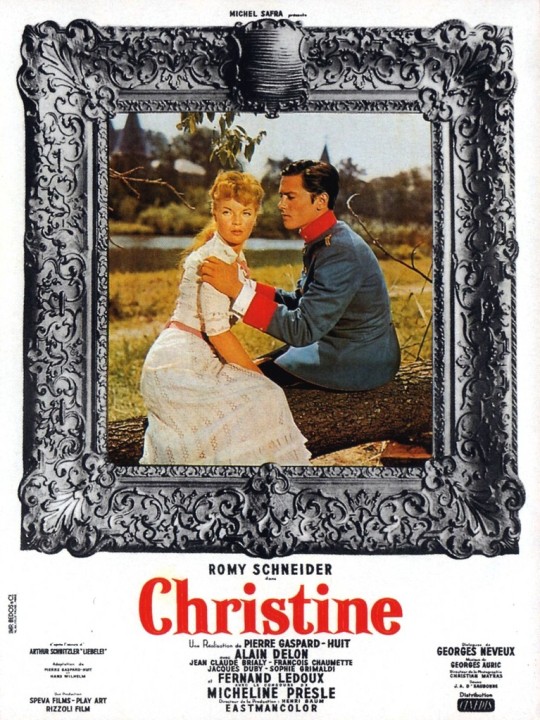
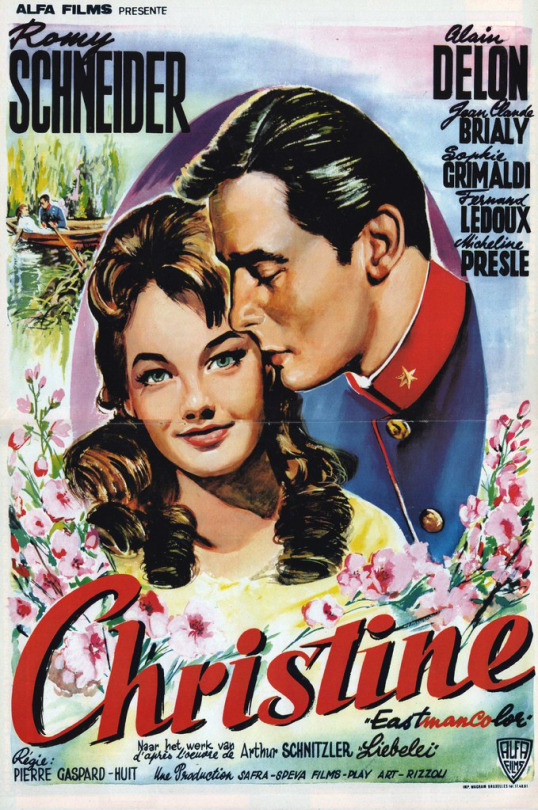
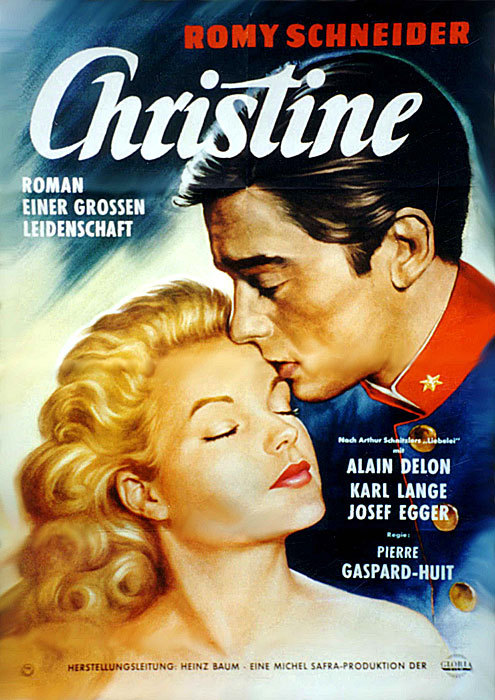

"Christine" de Pierre Gaspard-Huit (1958) - remake de "Liebelei" de Max Opüls (1933) tiré lui-même de la pièce de théâtre "Amourette" d'Arthur Schniztler (1896) - avec Romy Schneider, Alain Delon, Jean-Claude Brialy, Sophie Grimaldi, Micheline Presle, Fernand Ledoux, Jacques Duby et Bernard Dhéran, juillet 2023.
#films#spirit#GaspardHuit#Ophuls#Schniztler#Schneider#Delon#Brialy#Grimaldi#Presle#Ledoux#Duby#Dheran
4 notes
·
View notes
Text
Grand Budapest Hotel (2014)
Wes Andersons Komödie spielt in der fiktiven Republik Zubrowka während der Zwischenkriegszeit.

Im Laufe des Films wird die mondäne Vergangenheit des nun herabgekommenen und menschenleeren Grand Budapest Hotel in fünf unterschiedlichen Kapiteln erläutert. Es beginnt mit einem Flüchtlingsjungen, der eine Arbeitsstelle als Lobby Boy in dem Hotel ergattert. Gustave, der charmante Hotelbesitzer, gerät im Laufe der Geschichte in einen kleinen Konflikt, wegen eines Erbes, das eine seiner Geliebten hinterlassen hat - ein unbezahlbares Gemälde.

Ihre beiden Söhne nicht nicht sonderlich begeistert. Gustave nimmt das Gemälde an sich - um im Nachhinein von den Söhnen seiner verstorbenen Liebelei des Mordes bezichtigt zu werden. Dies erweist sich nicht als Ende des Dramas, das durch das Erbe entstanden ist. (6/10)
#The Grand Budapest Hotel#film review#review#film#highly recommend#wes anderson#Ralph Fiennes#Tony Revolori#F. Murray Abraham#Mathieu Amalric#Willem Dafoe#2014
2 notes
·
View notes
Text
LIEBELEI _Arthur_Schnitzler_2024
Salzkammergut Festwochen Gmunden Stadttheater Gmunden LIEBELEI von Arthur Schnitzler Premiere: Donnerstag, 11. Juli 2024 | 19:30 Uhr Freitag, 12. Juli 2024 | 19:30 Uhr Samstag, 13. Juli 2024 | 19:30 Uhr Anna Stiepani | Inszenierung Bühnenbild & Kostüme | Thurid Peine Dramaturgie | Andreas Erdmann Mit: Samuel Finzi, Jakob Kajetan Hofbauer, Lorena Emmi Mayer, Alexander Julian Meile,…
0 notes
Text


..., und allein von Gitarrenlang, lebtest du die ganzen Jahre lang, auch du, als Mann...!!!



'... doch die Zeit geht nie ganz an auch uns vorbei ...!"
Weekenders 1987 mit: "(In only) !10 minutes" live im 'Aladin' (Bremen), einer Grossraumdisco.
("... bist du zurück bei mir, oder ich verkauf' den gesamten wetvollen Schmuck von dir meistbietend dem nächsten!!"* *zu Beginn des Songs, bevor er startete, war stets dabei ein kurzes Telefonat noch zu hören von zwei Personen privat geführtes, von Band!)
'Und nun kriegt ihr als nächstes die Band Alphaville zu hören von uns mit "Do you wanna be Forever young?", wie gewohnt in der Eigenversion, so wie ihr es bereits aus den letzten Jahren von uns als Band gewohnt seid, wie immer oder nahezu immer mit leichten Veränderungen beim Text, als Band hat uns das sehr bekannt gemacht, wir gelten als beliebt, anschliessend gibts dann sogar noch Sasha mit...!!'
'Wollt auch ihr so wie wir für alle Zeiten jung bleiben, zumindest innerlich, äusserlich vielleicht auch, obwohl es da schwieriger fällt, dann ruft jetzt laut alle und stimmt selber ebenfalls mit: Ja!! Auch ihr im Publikum seid dafür!!"
'Warum hab' ich ein brandneues Love-Tatoo, und du hast noch keins ...!!'


der allererste sogar Frühstücks-Kaffee, gleich früh morgens durch uns getrunken ... als Männern! (Hier stammt er aus sogar Italien!!)

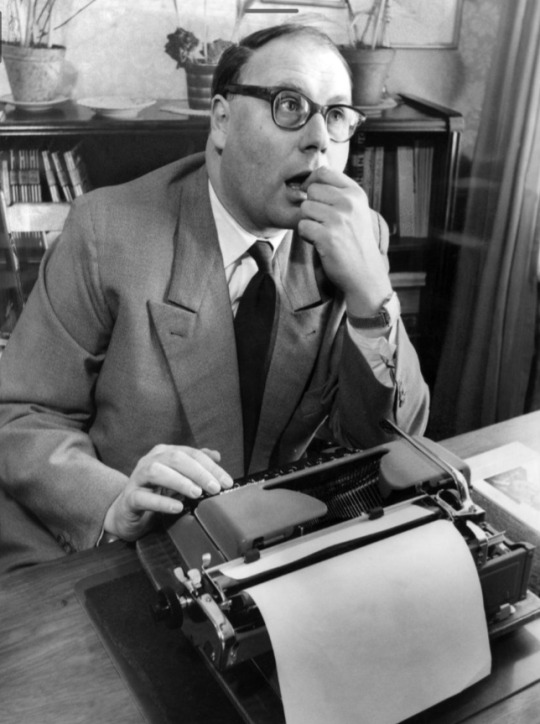
der (deutsche) Heinz im extrem hartennZustand, wie er trotzdem immer noch dabei weiter nebenher an neuen Gedichten schreiben kann, so wie es den Anschein erweckt! *Heinz er hart! ('Noch 'n Gedicht von mir!!').
der Jürgen zusammen mit auch dem Markus (beide sind sie Deutsche): 'Für euch fahren Züge bald nirgendwo mehr hin!' * Gefangenentransporte mittels Zügen und in Wagons.
der Lagerinhaftierte. das Kz.
'Ein Festival der reinen Liebe ... solll deswegen von nun an auch euer Leben sein!! Wir laden Euch dazu ein!!"
'Es gibt jetzt Samba dafür - von uns! Samba Samba, falls nötig, dann auch die halbe Nacht!!!! Wirtanzen Samba mit euch, weil so ein Samba uns glücklich macht! Liebe ... Liebe ... Liebelei, morgen ist es dann vielleicht schon alles längst vorbei, und mit euch, wir tanzen Samba mit dir ...!!"
Und selbst bei Jürgen - als nur noch weiterem Deutschen - dreht sich von all dem der auch eigene Hintern immer wieder extrem schwer auch!!
'Tiere wie ihr - sind sie erstmals im Himmel dadurch noch gensuso auch angelangt!' *the Rod (/Usa).
*'Rod Stewart'
Selbst zu gelegentlichen auch Kinderverschickungen und Transporten in Lager war es vor '45 dabei auf Seite der Deutschen gekommen!

'kleiner Keks, Kekse'. der, die erst 7- oder 10-jährige Knabe oder Mädchen.




Dieser Thomas ist anders!
*Thomas Anders. Erfolgreiche Gesangduos der 90er in Deutschland.




"Schweigen Sie!!! Still!"



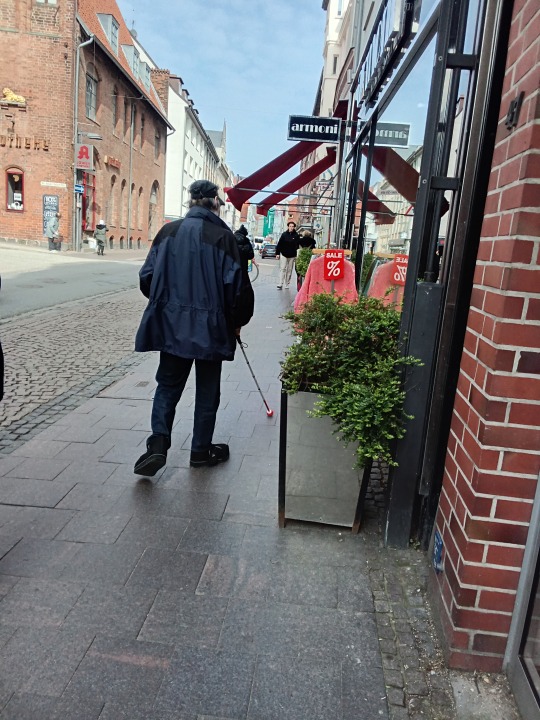








Hits haben, welche erzieen, und am besten gelegentliche sogar auch eigene.
sehr/mega) er-folgreich sein
#Got a brand-new litl love-tatoo!#The Weekenders in den 80er Jahren#Forever young by Alphaville#Musik der 80er und 90er Jahre#der selbst Latte Machiato aus Italien#beliebte Kaffesorten#beliebte Sänger und Bands#Nena#die Ärzte#Söhne Mannheims#Britneys Speer#We love Cock'n Ball!#Ruten von Männern#rod#die auch Stewarfs als Famile aus den Staaten#südafrikanische Sänger#deutscher Schlager der 70er#Jürgen Marcus#Jürgen Drew-s#Schwindelanfälle#Tegernsee#Dieter Bohlen#Davidsstern#hits
0 notes
Text
Ich kenne dich kaum, ich kann mich nicht in dich verlieben - so glaube ich, mein kleines Herz zu schützen. Es ist abzuwarten, ob ich das schaffe. Oder ob ich daran zerbrechen werde, wieder und wieder einer Liebelei hinterherzulaufen, die nie mehr war als ein auf einmal gekeimter und seitdem langsam immer größer gewachsener Gedanke. Du bist nicht mehr als eine Fantasie, das weiß ich doch, aber wahrhaben will ich es nicht. Melancholie schmeckt schlichtweg spannender als Indolenz.
0 notes
Text
Der verliebte Referendar


Der verliebte Referendar ⋆ Geld Liebe Heirat und eigenes Heim
Der verliebte Referendar ⋆ Geld Liebe Heirat und eigenes Heim
Ich war auch verliebt. Tatsächlich. Und es war eine wirkliche, ordnungsgemäße Liebe … Ich war damals Praktikant bei einem Gericht. Es ist die erste Stufe der Laufbahn; man ist bereits staatlich und leistete so eine Art von Beamteneid. Auch erhält man eine Bezahlung; ich glaube monatlich sechzig Cent für den Verbrauch von Federn und Papier. Das heißt, ich erhielt das Geld nie; unser Präsident gab uns die Schreibmaterialien und vertrank dann wohl den ganzen Betrag selbst. Aber es war in uns doch das Bewusstsein, dass wir in die Beamtenkategorie eingereiht waren. Und da denkt man unwillkürlich auch an das Heiraten. Man stellt sich das so vor: Anstellung, Beförderung, das eigene Heim. Ich glaube, dass alle Referendare die gleiche Idee haben. Noch dazu wäre es mir sehr erwünscht gewesen, ein anständiges, das heißt also, ein wohlhabendes Mädchen heimzuführen. Das ist ja heute das einzige Mittel, aus unseren Kapitalisten Geld heraus zu bekommen. Das gab es den Privatier Gillinger mit zwei Töchtern, und der Getreidehändler Scholler mit der siebzehnjährigen Elsa, die immer das stramme Korsett an hatte. Die Gillingers hätten auch Geld gehabt, aber, ich weiß nicht. Ein bisschen Fleisch soll doch schon vorhanden sein; so ein knochiges Wesen hat äußerst selten ein weiches Gemüt. Deshalb verwandte sich mein ganzes Bemühen auf Fräulein Scholler zu. Ich glaube noch heute, dass ich glücklich geworden wäre. Ich versäumte nie, sie zu grüßen, wenn ich sie am Fenster sah. Und da mir, wie heute noch, klar war, dass alles Uniformliche, Kostümliche stark auf die Frauen wirkt, zeigte ich mich häufig in der Robe. Ich war immer ein Mensch von raschem Entschluss, und da ich mir sagte, dass bei meiner gesellschaftlichen Stellung eine leere Liebelei zwecklos und unmoralisch wäre, nahm ich mir einfach vor, Herrn Getreidehändler Scholler zu besuchen. Kurz und gut, ich machte meine Aufwartung und wurde auch nett empfangen. Der Alte war ein gemütlicher Mensch und bemühte sich offene und gute Manieren zu zeigen. Elsa kam, und wir sprachen von diesem und jenem. Auch von meiner Stellung und meinen Aussichten. Ich sagte, dass ich Richter werden wolle, weil mir das am besten zusage. Man sei unabhängig, würde mit vollem Gehalt pensioniert, und dann genieße der Richter doch ein kolossales Ansehen. Ich bemerkte mit Vergnügen, dass Herr Scholler meinen Ausführungen sichtliches Interesse schenkte. Er ließ mich nicht aus den Augen; besonders dann, wenn ich die Vorzüge meines Berufes rühmte und über meine Zukunft sprach. Ich war darüber nicht erstaunt, denn ich habe immer gefunden, dass man gerade in bürgerlichen Kreisen einen großen Respekt vor der akademischen Bildung hege. Ich wurde gesprächig, ich zeigte mich Elsa im schönsten Licht und beschloss, den braven Leuten schon bei meinem nächsten Besuch meine Absichten zu enthüllen. Ich verabschiedete mich. Im dunklen Hausgang hielt mich Herr Scholler einen Augenblick zurück und sagte: »Wissen Sie, wir hatten auch mal einen Rechtspraktikanten in unserer Familie. Ich weiß, was für arme Teufel das sind. Hier, behalten sie das!« Dabei drückte er mir etwas in die Hand und schob mich gutmütig hinaus. Es war ein 10 Euroschein. Ich habe daraufhin das Frauenzimmer einfach links liegen lassen. Der verliebte Referendar ⋆ Geld Liebe Heirat und eigenes Heim Read the full article
1 note
·
View note
Text
Da ist etwas
Zwischen dir und mir
Jeder kann es sehen
Menschen bleiben stehen
Wenn wir Hand in Hand
Fröhlich
Durch die Strassen gehen
Sommergefühle?
Verliebtheit ?
Eine Liebelei?
Nein, es ist viel mehr
Ein unsichtbares
Band verbindet uns
Es wird
LIEBE
Genannt…

1 note
·
View note
Text


Romy Schneider et Alain Delon dans "Christine" de Pierre Gaspard-Huit (1958) - remake de "Liebelei" de Max Opüls (1933) tiré lui-même de la pièce de théâtre "Amourette" d'Arthur Schniztler (1896) - juillet 2023.
6 notes
·
View notes
Text
"Mein Herz blutet jeden verdammten Tag."
- heartbroken
#herzschmerz#liebe#liebeskummer#kraftlos#einsam#allein#depressiv#wieso#fragen#gedanken#blutet#blut#freundschaft#liebelei#liebe nicht erwiedert#heartbroken#lonley
297 notes
·
View notes

